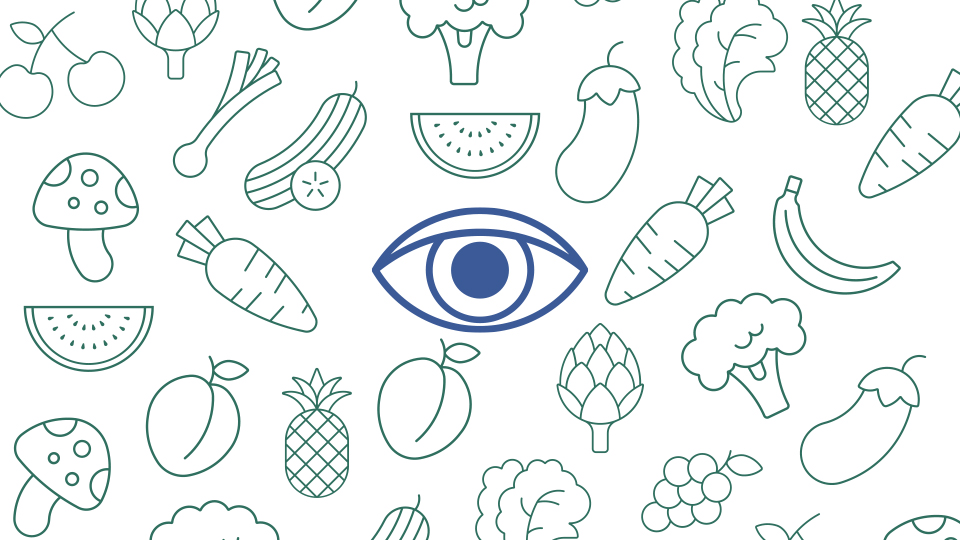Refraction or prescription
31/03/2025

25/03/2020
A balanced and proportionate diet means health, also eye health. Every day we have more evidence of the influence of nutritional habits: it is estimated that 70% of diseases originate from poor diet and that 50% of mortality is related to nutritional factors.
If we look at eyesight, around 80% of eye disorders can be prevented with good eating habits. In fact, there are studies that have been able to demonstrate the protective effect of vitamins, antioxidants and other micronutrients consumption in various ocular eye pathologies, such as cataracts, glaucoma, age-related macular degeneration (AMD) and dry eye syndrome.
Preventing diseases
The key is in the balance, since dietary disorders can have an impact both by excess and by default. For example, vitamin A deficiency can lead to night blindness, and that of vitamin B12 can lead to photophobia, corneal alterations and optic neuropathies.
In the same way, excessive intake can result in diseases such as obesity, high blood pressure, diabetes mellitus and hypercholesterolemia, which can very negatively affect our eyes by accelerating the progression of certain eye conditions.
70% of diseases have their origin in food and 80% of eye disorders can be prevented
The basic rules
We will give our body everything it needs if we do the following:
Increasing the intake of antioxidants is really necessary, as numerous studies show its protective effect on the eyes and the rest of the body. In particular, lutein - a natural ingredient found in many greens, vegetables, and fruits seem to be the most important since it has the function of sequestering free electrons, reducing radicals formation. In addition, it is a vital protein for our retina.
The influence of the environment
For millions of years, our photoreceptors - the cells of the retina that absorb light - have operated in relatively constant conditions: the only light source was the sun, the daylight hours were the day, which limited working time of our eyes. In addition, the diet was simple and based on natural products.
Over time, the anatomy and physiology of the eye have evolved. So much so that we now work 12 to 16 hours a day under artificial lighting of different types, submitting our eyes to incredible effort. Diet has also worsened, reducing the intake of fruit and vegetables, which previously provided protective antioxidant agents, and increasing consumption of fats and carbohydrates. Dyslipidemias have also grown, that is, the concentration of lipids in the blood, mainly cholesterol and triglycerides.
To make matters worse, the environment has also deteriorated with the alteration of the ozone layer and the increase in blue radiation, generating free radicals in the eye and causing early aging. Furthermore, smoke, psychophysical stress and atmospheric and environmental pollution also have a very negative effect on eye health. To compensate for this lifestyle, in addition to following correct eye hygiene guidelines, we must take care of our eyes with a good diet.